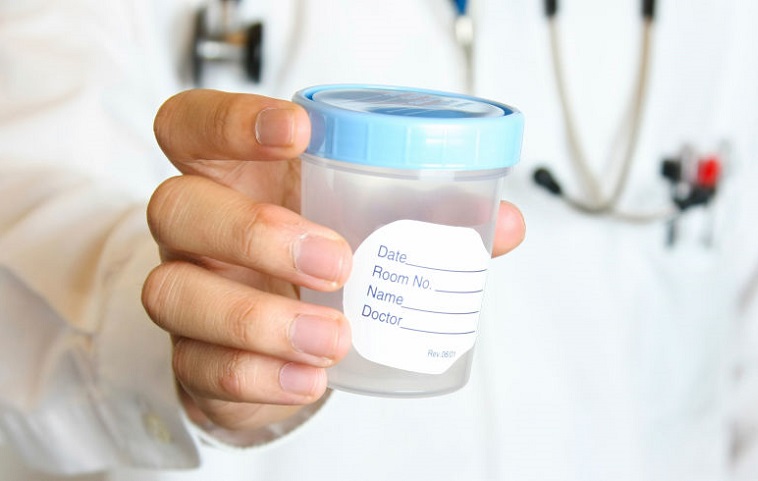Does IVF treatment cause early menopause?

When is pregnancy evident after embryo transfer?
3 October 2022
Does freezing embryos reduce the chances of pregnancy during IVF?
3 October 2022Does IVF treatment cause early menopause?

Does IVF treatment cause early menopause?
Menopause is a normal condition that every woman faces as she grows older. Menopause refers to the period when changes occur and fertility in women ends when menstruation ends or before it ends.
Women have a certain number of eggs in their ovaries from the moment they are born. The ovaries also release hormones called estrogen and progesterone. These hormones also control menstruation and ovulation. When menopause occurs, the ovaries are no longer able to produce eggs every month, and the woman stops menstruating.
Most women begin menopause between the ages of 45 and 55. Overall, the median age at menopause is 51 years. Premature menopause, on the other hand, is commonly used for menopauses that begin before the age of 45. Menopause occurring before the age of 40 is called premature menopause.
Menopause causes your ovaries to stop producing eggs and experience a drop in estrogen levels. Estrogen is the hormone that controls your reproductive cycle. A woman is considered to be in menopause if she has not had a period for more than 12 months. The period when symptoms appear that appear before menopause, such as hot flashes, is called premenopause.
Anything that damages your ovaries or stops your estrogen production can cause premature menopause. Even chemotherapy for cancer treatment can cause early menopause. In this case, your doctor will tell you about the possibility of premature menopause.
Causes of early menopause
- Genetics. If there is no medical reason for premature menopause, it may be due to your genetics. Knowing when your mother went through menopause can help you get an idea of when you will go through menopause. If your mother had an early menopause, you may also have an early menopause. However, since genetics is not the only factor, there is a possibility that you will not enter early menopause.
- Lifestyle. Some lifestyle factors can affect the onset of menopause. For example, smoking has antiestrogenic effects and can cause premature menopause. Some studies show that smokers go through menopause on average 2 years earlier than non-smokers.
- Body mass index: Your body mass index may also be the cause of early menopause. Estrogen is stored in adipose tissue. Very thin women will also have low estrogen stores, so it can be depleted earlier and cause early menopause.
- Diet. In addition, some research suggests that factors such as a vegetarian diet, sedentary lifestyle, and little sun exposure are factors that can cause early menopause.
- Chromosomal defects: Chromosomal defects can also affect early menopause. For example, the ovaries in women with Turner syndrome are not functionally functional. This can lead to early menopause in women with Turner syndrome. However, in addition to Turner syndrome, chromosomal abnormalities can cause early menopause. In violation of the differentiation of the gonads, the ovaries do not function. This may require hormone therapy during puberty. Early menopause can also occur in women with fragile X syndrome or in people who are genetic carriers.
Women with early menopause should have genetic tests or discuss their family history with their doctor.
- Autoimmune diseases. Early menopause can also occur due to autoimmune diseases such as rheumatoid arthritis and thyroid disease. In autoimmune conditions, the immune system attacks a part of the body because it sees it as an invader. The resulting inflammation can also affect the ovaries. After the ovaries stop working, menopause occurs.
- Epilepsy: Epilepsy is a seizure disorder that originates in the brain. Egg dysfunction can occur early in women with epilepsy, leading to early menopause.
Symptoms of early menopause
Premature menopause is suspected if your menstrual cycles become irregular or your periods are much longer or shorter than normal. Other symptoms may include:
- Severe bleeding
- staining
- Menstruation lasts longer than a week
- Too much time between two periods
- If you experience any of the above symptoms, be sure to consult a doctor. Other conditions can also cause these symptoms.
Other symptoms of menopause are as follows:
- Mood change
- Change in sexual feelings and desires
- Vaginal dryness
- Difficulty falling asleep
- Tides
- Night sweats
- Urinary incontinence
How to diagnose early menopause?
Stage before entering menopause is called perimenopause. During this time, you may have irregular periods and you may experience some symptoms yourself.
In general, if you have not had a menstrual cycle for more than 12 months and it was not caused by any medical condition, you are considered to have entered menopause. Testing is not usually required to detect menopause. Most women can tell they are going through menopause by the process they are in. If you think you’re going through early menopause, you should talk to your doctor about it.
Your doctor may order hormone tests to determine if your symptoms are premenopausal or if another condition is causing them.
Does IVF treatment cause early menopause?
In IVF treatment, the woman’s eggs are guaranteed to mature and various medications are used to prepare them for fertilization. The maturing eggs are then taken and combined with sperm in the laboratory. When a sperm fertilizes an egg, an embryo is formed and placed in the uterus.
Today, many couples with fertility problems resort to in vitro fertilization treatment. However, contrary to fears, IVF treatment does not cause early menopause. There is a common belief that fertility drugs and IVF cause premature menopause, but this is not true. According to this misconception, it is commonly believed that fertility drugs stimulate the maturation of the ovaries and the release of 10-15 eggs and therefore cause premature egg depletion.
In your normal cycle, your body produces 10-20 eggs. During a cycle, one of these follicles emerges preferentially, matures, and becomes capable of producing eggs. The remaining immature eggs die. Fertility drugs allow the egg follicles already produced in your body to mature. It ensures the development of eggs, which normally disappear during the menstrual cycle. In other words, this does not mean that egg production is encouraged and the eggs are consumed by the woman at an early age.
Can you get pregnant after menopause?
IVF can help you get pregnant after menopause. What’s more, it doesn’t matter if you’ve entered early menopause or are at a normal menopausal age. Of course, if you have gone through menopause, you will need to use donor eggs, but you can still get pregnant in a healthy way.
However, if you haven’t had menopause but think you might have contracted it earlier, you should definitely talk to your doctor about it. In this way, you will be able to discuss treatment options related to your fertility in detail.
Is early menopause predictable?
Most fertile age for women is 20 years. However, most women delay pregnancy until the age of 30 due to both education and business life. In fact, sometimes you can see that the age of birth of children is in the 40s. However, female fertility begins to decline rapidly after age 35.
It is difficult to predict whether a woman will go into early menopause. Some women have clear pre-menopausal symptoms, while others are vague and often don’t realize it until they try to have a baby. In cases where pregnancy fails, you can understand that you are in the premenopausal period as a result of some tests.
If there are women in your family who have gone through early menopause, you should tell your doctor. So she/he can do some tests to see if the same situation happens to you.
Impact of menopause on overall health
It has long been believed that estrogen has a protective effect on women. This is due to the fact that diseases of the heart and blood vessels in women aged 20-50 years are less common than in men. Some studies show that the risk of developing heart disease in women under 45, that is, before menopause, is half that of men.
Although the risk of heart attack is lower in non-menopausal women, this risk may increase rather than decrease when estrogen is given to menopausal women. For this reason, hormone therapy is no longer the recommended treatment for menopause. However, treatment may be used to prevent bone loss and hot flashes in early menopausal women.
Women who enter menopause at an early age live most of their lives without the protective effects of estrogen. This situation can increase the risk of a heart attack, as well as cause high blood pressure and high cholesterol at an early age. In addition, weight gain after menopause can adversely affect cardiovascular health.
Health problems that affect women after menopause may include:
- Osteoporosis
- Heart diseases
- Increased risk of Alzheimer’s disease
- Weakness in muscles
- Weakness of vision (cataract) and macular degeneration
- Decreased skin elasticity and increased wrinkles

